Introduction To Hibiscus And İts Benefits
Have you ever heard of hibiscus? This beautiful flower is not only a stunning addition to any garden, but it also has numerous health benefits. Hibiscus is native to tropical regions and is often used to make teas, infusions, and even cosmetics. In this blog post, we will explore the many benefits of hibiscus and why you should consider incorporating it into your daily routine.
Firstly, hibiscus is incredibly rich in antioxidants. These powerful compounds can help to protect your body against free radicals, which are unstable molecules that can damage your cells over time. Some studies have shown that hibiscus may be particularly effective at reducing oxidative stress in the liver and kidneys, which are both vital organs for detoxification.
Hibiscus may also play a helpful role in weight management, thanks to its low calorie and high fiber content. This combination can help you to feel more full and satisfied after a meal, reducing the likelihood of overeating or snacking on unhealthy foods. Additionally, hibiscus has been shown to have a positive effect on cholesterol levels, which can be a key risk factor for heart disease.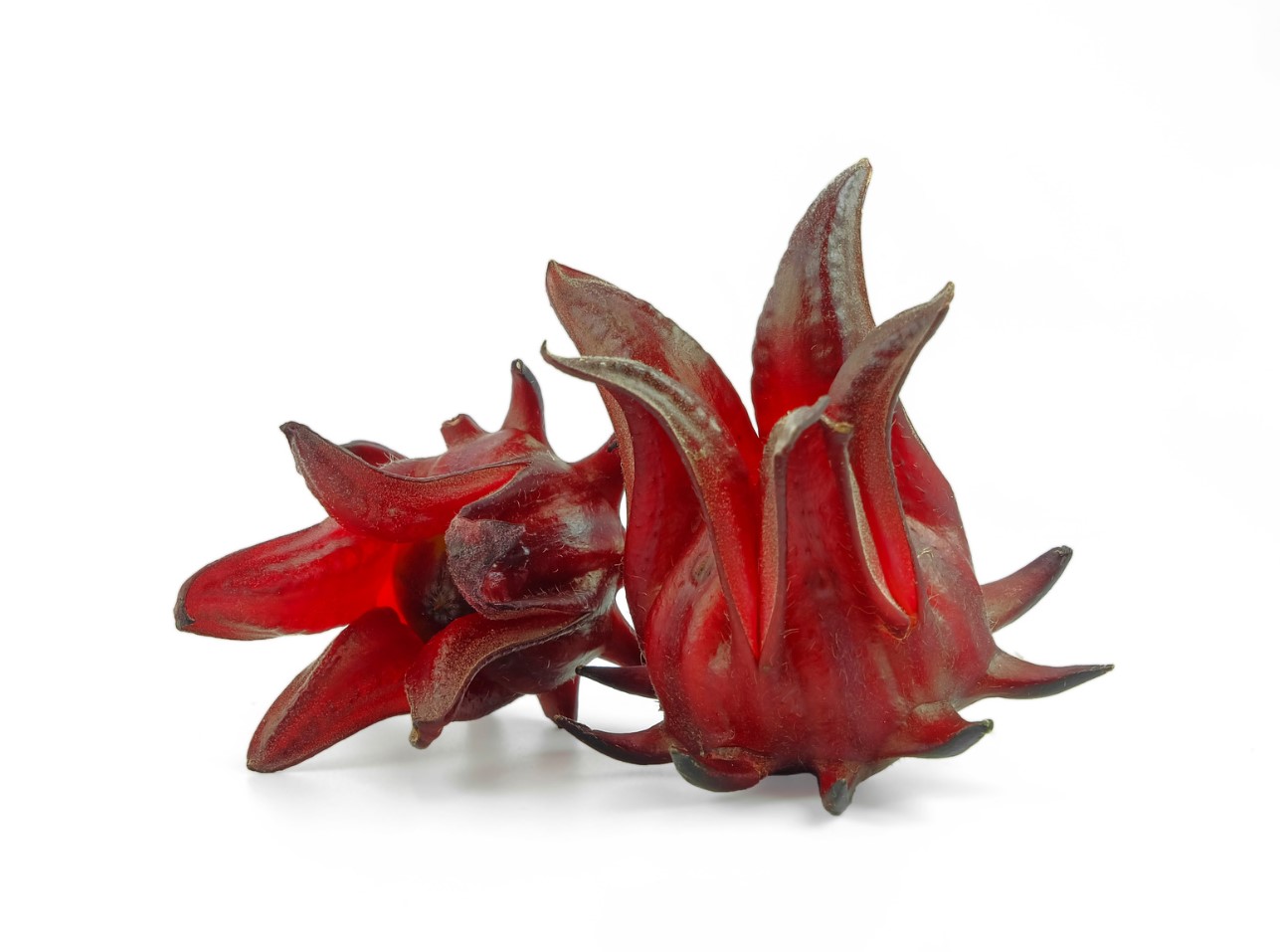
- In summary, some of the benefits of hibiscus include:
- Rich in antioxidants
- Promoting weight management
- Helpful for cholesterol levels
- May help to detoxify the liver and kidneys
Whether you’re looking to boost your overall health or simply add a burst of flavor to your tea break, hibiscus is an excellent choice. With its many benefits and versatility, this beautiful flower can be an easy addition to your daily routine. So why not try brewing up a cup of hibiscus tea today and experience the benefits for yourself?
Rich Antioxidant Content Of Hibiscus
Hibiscus is not only a beautiful flowering plant, but it also has many health benefits. One of the key benefits of hibiscus is its rich antioxidant content, which makes it a popular choice for promoting overall health and wellness. Antioxidants are substances that protect your body’s cells from damage caused by free radicals, which are produced by your body when it is exposed to things like pollution, cigarette smoke, and even sunlight.
The antioxidant properties of hibiscus are due to the presence of compounds called anthocyanins, which are pigments found in many brightly colored fruits and vegetables. These compounds are thought to play a role in protecting against a variety of chronic diseases, including heart disease, cancer, and diabetes.
- In addition to its antioxidant content, hibiscus has also been shown to have other health benefits. For example, studies have found that drinking hibiscus tea can help lower blood pressure in people with hypertension. This may be due to the fact that hibiscus contains compounds that act as natural diuretics, helping to reduce the volume of fluid in the bloodstream.
- Hibiscus may also have anti-inflammatory properties, thanks to the presence of compounds like quercetin and kaempferol. These compounds have been shown to help reduce inflammation in the body, potentially reducing the risk of chronic diseases like arthritis and heart disease.
If you’re looking to add hibiscus to your diet, there are many ways to do so. One popular option is to make hibiscus tea, which can be enjoyed hot or cold. To make hibiscus tea, simply steep dried hibiscus flowers in hot water for several minutes, then strain and enjoy.
| Health Benefits of Hibiscus | How to Incorporate Hibiscus into Your Diet |
|---|---|
| Rich in antioxidants that may protect against chronic diseases | Drink hibiscus tea or add dried hibiscus flowers to your favorite recipes |
| May help lower blood pressure in people with hypertension | Enjoy hibiscus tea regularly or consider taking a hibiscus supplement |
| May have anti-inflammatory properties that could benefit those with arthritis or heart disease | Try adding hibiscus to your smoothies or making a salad dressing with hibiscus vinegar |
Whether you’re looking to improve your heart health, reduce inflammation, or simply enjoy the flavor of hibiscus, there are many reasons to incorporate this vibrant plant into your diet. So why not give it a try and see how it can benefit you?
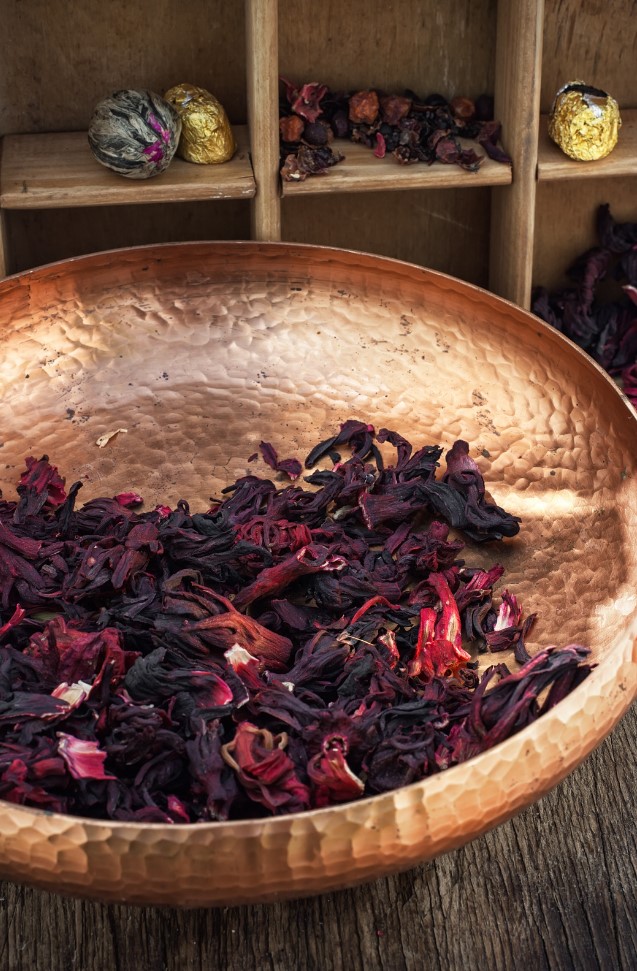
Hibiscus’ Role İn Weight Management
Hibiscus is a flowering plant known for its ability to help with weight management. This plant is rich in antioxidants and has been used for centuries as a natural remedy for various health conditions. So, how does hibiscus contribute to weight management?
Firstly, hibiscus tea can help promote weight loss by increasing metabolism. The antioxidants in hibiscus help to improve overall digestion and increase the metabolic rate, thereby burning more calories. This, in turn, helps to reduce weight and prevent excessive weight gain.
- In addition, hibiscus tea can help to reduce appetite and cravings, which can often lead to overeating and weight gain. The plant’s natural diuretic properties also help to eliminate excess water weight and reduce bloating.
- Aside from supporting weight loss directly, hibiscus can also help to manage weight indirectly. This is because hibiscus has been known to reduce stress and anxiety levels. When we’re stressed, we’re more likely to indulge in comfort eating and consume unhealthy foods. By reducing stress levels, hibiscus can help to prevent this type of emotional eating and support healthier eating habits.
Incorporating hibiscus tea into your daily diet is an effective way to support weight management goals. Not only is it a healthy, natural option- it is also delicious and can be enjoyed in hot or cold form. Whether you’re simply looking to maintain your current weight, or you’re actively trying to lose weight, hibiscus tea is a valuable addition to your routine.
| Takeaway: | Hibiscus tea can help with weight management by increasing metabolism, reducing appetite and cravings, and managing stress levels. |
Reducing Blood Pressure With Hibiscus Tea
Hibiscus tea is a popular beverage that is known for its unique taste and numerous health benefits. One of the most significant benefits of hibiscus tea is its ability to reduce blood pressure. Hypertension is a common health problem that affects millions of people worldwide, and drinking hibiscus tea can be a simple and effective way to address this issue.
How does hibiscus tea help reduce blood pressure?
Research has shown that hibiscus tea contains compounds that have blood pressure-lowering properties. These compounds, called anthocyanins and flavonoids, work by relaxing the blood vessels and improving blood flow. The tea has also been found to inhibit the activity of an enzyme that constricts blood vessels, thereby reducing blood pressure.
- In one study, participants who consumed hibiscus tea experienced a significant decrease in both systolic and diastolic blood pressure.
- Another study found that drinking hibiscus tea twice per day for four weeks led to a decrease in blood pressure comparable to that of a prescription medication.
How much hibiscus tea should you drink?
The optimal amount of hibiscus tea for reducing blood pressure appears to be around 2-3 cups per day. It’s important to note that hibiscus tea can also have a diuretic effect, meaning it can increase urine output. This can be beneficial for people with hypertension who also have fluid retention, but it’s important to stay hydrated and replenish fluids when drinking hibiscus tea.
Other benefits of hibiscus tea
Besides its blood pressure-lowering properties, hibiscus tea has several other potential health benefits. It is a rich source of antioxidants, which can protect against cellular damage and chronic diseases. The tea has also been found to improve cholesterol levels, boost liver health, and promote weight loss.
| Conclusion |
|---|
| Hibiscus tea is a delicious and refreshing beverage that has multiple health benefits, including reducing blood pressure. Its blood pressure-lowering properties are due to its ability to relax blood vessels and inhibit enzymes that constrict them. Hibiscus tea is a safe and natural way to address hypertension, but individuals should talk to their healthcare providers before incorporating it into their diets. With regular consumption, hibiscus tea can help promote overall health and well-being. |
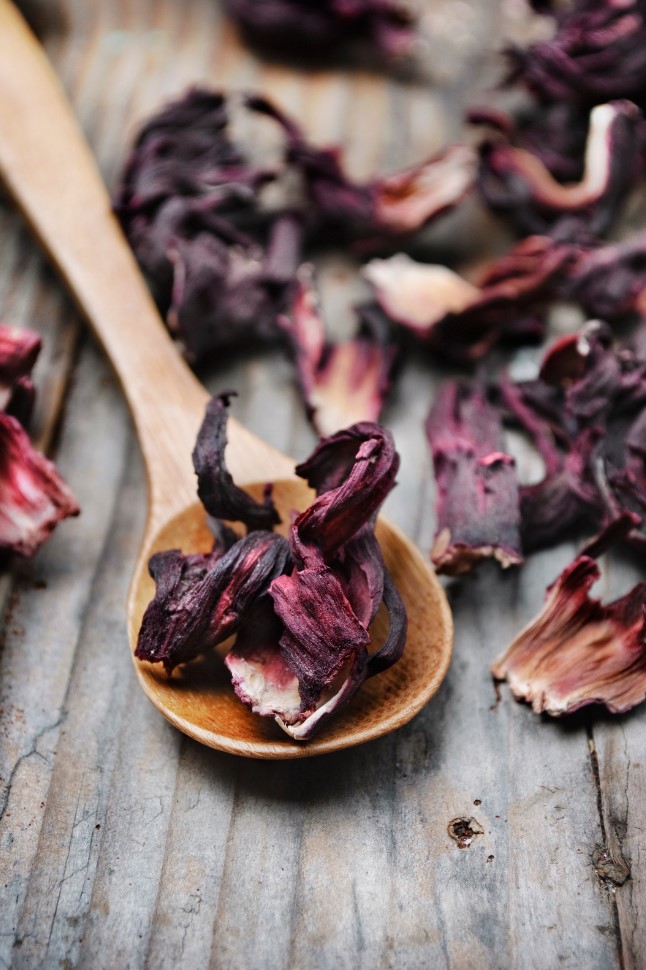
Boosting Immune System With Hibiscus
Hibiscus is a beautiful flower that is commonly found in tropical and subtropical regions around the world. It is famous for its bold colors and lovely fragrance. But, did you know that hibiscus has many health benefits as well? One of the most significant benefits of hibiscus is that it can boost your immune system.
It has been found that hibiscus is rich in antioxidants like vitamin C, which can help to strengthen your immune system. Antioxidants are essential in fighting off harmful free radicals that can cause cell damage and other health problems. Hibiscus is also known to have antibacterial, antiviral, and anti-inflammatory properties that can help to keep infections at bay.
- Drinking hibiscus tea regularly can help to increase the production of white blood cells in your body, which are vital in fighting off infections and diseases.
- Hibiscus tea is also believed to help in the prevention of respiratory infections like the common cold and flu.
| How To Make Hibiscus Tea | Benefits of Hibiscus Tea |
|---|---|
|
|
In conclusion, hibiscus is a natural and effective way of boosting your immune system. By regularly drinking hibiscus tea, you can help to strengthen your body’s defenses against infections and diseases. So, why not incorporate hibiscus into your daily diet today and enjoy the many health benefits it has to offer?
Anti-inflammatory Properties Of Hibiscus
Hibiscus is a plant known for its beautiful flowers, but did you know that it also has numerous health benefits? One of the most impressive benefits of hibiscus is its anti-inflammatory properties. Inflammation is the body’s natural response to injury or infection, but chronic inflammation can lead to a variety of health problems, including heart disease, diabetes, and cancer. Hibiscus contains compounds that have been shown to reduce inflammation and protect against these diseases.
One of the key compounds in hibiscus that has anti-inflammatory properties is quercetin. Quercetin is a flavonoid that acts as an antioxidant and has been shown to decrease inflammation in the body. Studies have found that quercetin can reduce inflammation in the lungs, improve asthma symptoms, and protect against heart disease. In addition to quercetin, hibiscus also contains other flavonoids and polyphenols that have anti-inflammatory effects.
- These compounds work by reducing the production of inflammatory molecules in the body, such as cytokines and prostaglandins.
- They also help to increase the activity of enzymes that promote the breakdown of these molecules, further reducing inflammation.
- Some studies have even suggested that hibiscus tea may be as effective as certain medications for reducing inflammation in the body.
While inflammation is a natural part of the body’s immune response, chronic inflammation can be harmful and lead to a range of health problems. By incorporating hibiscus into your diet, you can help reduce inflammation and protect against these diseases. Hibiscus tea is a simple and delicious way to enjoy the benefits of this plant, and can easily be made by steeping dried hibiscus flowers in hot water. Consider adding hibiscus to your daily routine to reap its anti-inflammatory benefits and support your overall health.
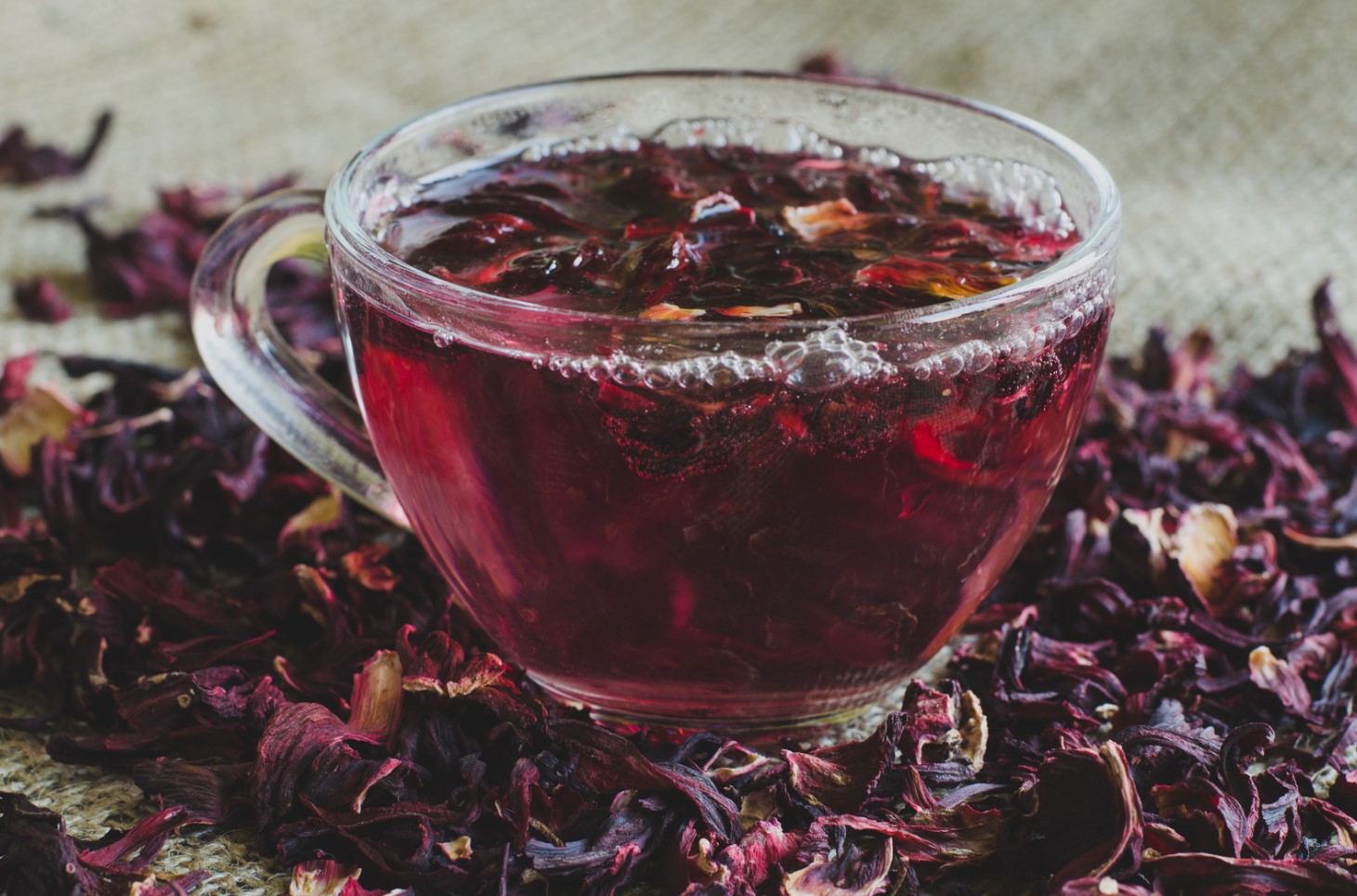
Hibiscus – A Natural Remedy For Anxiety And Depression
Have you been feeling down lately? Are you dealing with constant stress and anxiety? If so, you might want to consider incorporating hibiscus into your daily routine. This beautiful flower is not just a treat for the eyes, but also has powerful medicinal properties that can help alleviate symptoms of anxiety and depression.
Research indicates that hibiscus contains compounds that act as natural sedatives and calmants. One of these chemicals, flavonoids, have been shown to reduce anxiety levels and promote relaxation. In fact, a study conducted on a group of people with mild to moderate anxiety found that taking hibiscus extract for just four weeks resulted in a significant reduction in anxiety levels.
- Flavonoids in hibiscus help to reduce anxiety levels and promote relaxation.
- A study conducted with people suffering from anxiety found that taking hibiscus extract for four weeks reduced anxiety levels
Hibiscus tea in particular is a great way to reap the benefits of this flower. Not only is it delicious, but it is also easy to prepare. Simply steep a few hibiscus flowers in boiling water for a few minutes, strain, and enjoy! You can also add other calming ingredients like lavender, chamomile, or lemon balm for an extra relaxing effect.
| Benefits of Hibiscus for Anxiety and Depression |
|---|
| Reduces anxiety levels |
| Promotes relaxation |
| Acts as a natural sedative and calmant |
| Can be consumed in the form of tea, tinctures, or supplements |
Aside from drinking hibiscus tea, you can also find hibiscus supplements or tinctures at your local health store. However, be sure to speak with a healthcare professional before taking any new supplements.
In conclusion, hibiscus is a natural and safe way to combat anxiety and depression. Whether you prefer to sip on a cup of tea or take a supplement, incorporating hibiscus into your daily routine can help promote relaxation and reduce stress levels.

Hibiscus For Better Digestive Health
The Hibiscus plant, scientifically known as Hibiscus sabdariffa, has been used for centuries across the world as a natural remedy for various ailments. Hibiscus is commonly known for its beautiful and vibrant flowers, but it is also known for its health benefits, such as promoting better digestive health.
Hibiscus contains antioxidants known as anthocyanins, which help to protect the body against cellular damage and reduce inflammation in the digestive tract. These antioxidants also support the growth of healthy gut bacteria and improve overall gut health, reducing symptoms of digestive issues such as bloating, gas, and constipation.
- Incorporating Hibiscus Tea into your daily diet can provide relief from gastrointestinal discomforts. It can also boost the functionality and stability of the digestive system.
- Hibiscus can stimulate digestion, making it easier for the body to break down and absorb nutrients from food.
- Hibiscus tea possesses strong anti-inflammatory properties that support the healing process of the digestive system, reducing any irritation or inflammation that may occur in the digestive tract.
| Benefits For Digestive Health | How To Make Hibiscus Tea |
|---|---|
| -Relieves constipation and bloating -Improves overall gut health -Supports growth of healthy gut bacteria -Reduces inflammation in digestive tract |
1. Boil water in a pot 2. Add Hibiscus tea leaves to a cup 3. Pour boiling water into the cup 4. Steep for 5-10 minutes 5. Strain the tea leaves 6. Add sweetener if desired 7. Enjoy! |
Hibiscus has been used for centuries in Ayurvedic medicine to improve digestive health. The herb is a gentle yet potent tool to support digestion and promote overall gut health. Hibiscus tea can be easily incorporated into one’s daily diet for optimal digestive health, providing relief from common digestive issues while supporting and promoting healthy digestion.
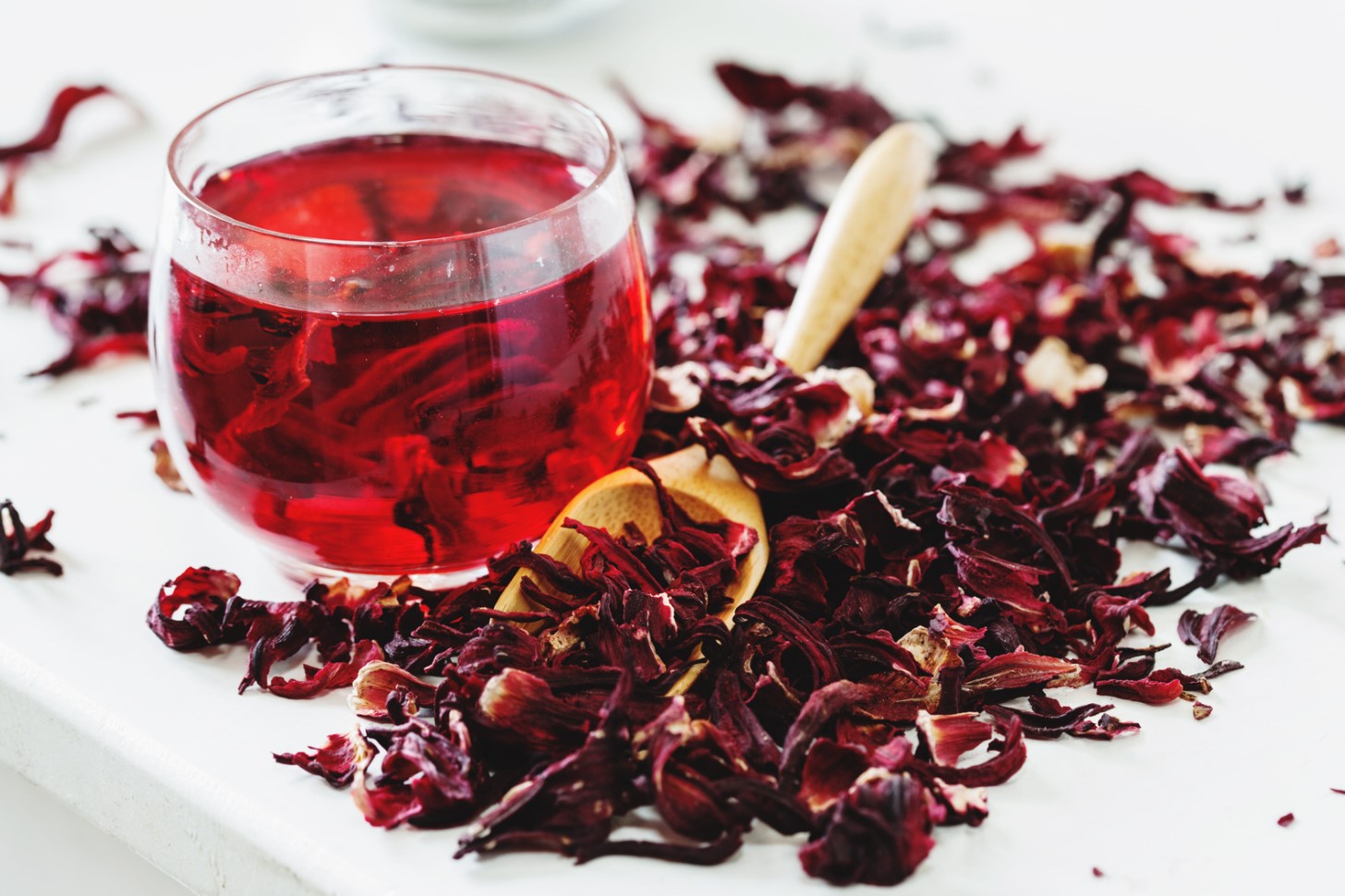
Potential Anti-Cancer Properties Of Hibiscus
Hibiscus is a beautiful flower with a wide range of health benefits, including potential anti-cancer properties. Recent studies have shown that hibiscus can help prevent and treat different types of cancers such as breast, prostate, lung, skin, and others. It is rich in antioxidants, anthocyanins, and polyphenols, making it a powerful natural remedy for various health issues.
The anti-cancer activity of hibiscus is believed to be related to its ability to induce apoptosis or cell death in cancer cells. Studies have shown that hibiscus extract can inhibit the growth of cancer cells by blocking cell division and inducing apoptosis. Moreover, it can also prevent new blood vessel formation in tumors, which can prevent their growth and spread.
Aside from its anti-cancer properties, hibiscus has also been shown to have other health benefits. It can lower blood pressure, reduce inflammation, boost immunity, and promote healthy skin and hair. Drinking hibiscus tea regularly can also help improve digestion and relieve anxiety and depression.
| Types of cancer hibiscus can help prevent or treat: |
|---|
| Breast cancer |
| Prostate cancer |
| Lung cancer |
| Skin cancer |
| Colon cancer |
In conclusion, hibiscus is a powerful natural remedy that has potential anti-cancer properties. It is rich in antioxidants, anthocyanins, and polyphenols, making it a great addition to any diet. Drinking hibiscus tea regularly can help prevent and treat various types of cancers and other health issues as well. So, start incorporating hibiscus into your daily diet and enjoy its many health benefits!
Hibiscus For Promoting Healthy Skin
Hibiscus, also known as the “rose mallow,” is a flowering plant with a profound history in traditional medicine. Its versatility is attributed to the numerous health benefits that it possesses which extends to skincare. As much attention has been given to hibiscus tea for its multiple benefits, the flower is less popular for its skin-rejuvenating properties.
However, hibiscus has been gaining popularity as a natural remedy for promoting healthy skin, thanks to its vibrant colors, rich antioxidant content, and exceptional exfoliating properties. Its benefits in achieving perfect skin tone and texture are impossible to ignore.
Antioxidant Properties
- Hibiscus boasts some of the most powerful antioxidants. These antioxidants that include Vitamin C and Anthocyanins, come in handy in fighting free radicals that damage the skin.
- By neutralizing free radicals, Hibiscus tea helps to prevent skin tumors and possibly reverse DNA damage.
- The antioxidants present in hibiscus tea act as a shield against harmful UV rays which are responsible for premature aging.
Exfoliating Properties
- The enzyme that causes the hibiscus petals to wilt, also works on shedding dead skin cells.
- Hibiscus contains natural alpha-hydroxy acids (AHAs) which help to exfoliate the skin in a non-abrasive way; they break down the bonds between dead skin cells, which helps to get rid of dull, flaky skin.
- The amino acids present in Hibiscus also help to prevent acne-causing bacteria from adhering to the skin.
What are the best ways to use Hibiscus on the skin?
| Hibiscus-infused oil | Hibiscus face mask | Hibiscus toner |
|---|---|---|
| Massage hibiscus-infused oil into the skin to lock in moisture and fight premature aging. | Mix ground hibiscus petals with yogurt and honey, apply the mixture on your face and leave on for about 15 minutes for a rejuvenated skin. | Mix hibiscus tea with apple cider vinegar to make a toner that can act as a natural cleanser and also help in balancing the pH level of the skin. |
It is important to note that natural remedies such as hibiscus for promoting healthy skin should not be considered a substitute for other proven options. However, incorporating this “miracle plant” into your daily routine may improve your skin texture and give your skin an enviable glow.

Improving Hair Health With Hibiscus Infusions
Hibiscus is not only a beautiful flower, but it also has numerous health benefits. One of the lesser-known benefits of hibiscus is its ability to improve hair health. Rich in vitamins, minerals, and antioxidants, hibiscus has been used for centuries in traditional medicine to promote hair growth and improve scalp health. Additionally, hibiscus has anti-inflammatory properties that can help soothe an irritated scalp and reduce dandruff.
Hibiscus can be consumed in the form of tea, but it can also be added to hair care products such as shampoos and conditioners. When used topically, the vitamins and nutrients in hibiscus can penetrate the scalp and help strengthen hair follicles, leading to less hair breakage and smoother, shinier hair.
- One way to incorporate hibiscus into your hair care routine is to create a hibiscus-infused oil. To do this, simply add dried hibiscus flowers to a carrier oil such as coconut or jojoba oil and let it sit for a few weeks before straining out the flowers. The resulting oil can be used as a pre-shampoo treatment or as a leave-in treatment to nourish the scalp and hair.
- You can also create a hibiscus hair rinse by steeping dried hibiscus flowers in hot water for several hours and then using the resulting liquid to rinse your hair after shampooing. This can help soothe an itchy scalp and add shine to dull hair.
It’s important to note that while hibiscus can be beneficial for improving hair health, it should not be used as a replacement for medical treatments for hair loss or other scalp conditions. As with any new hair care routine, it’s always best to do a patch test and monitor your scalp for any adverse reactions.
| BENEFITS OF HIBISCUS FOR HAIR HEALTH |
|---|
| Promotes hair growth: The vitamins and minerals in hibiscus can help nourish hair follicles and promote healthy hair growth. |
| Strengthens hair: Hibiscus can help strengthen hair follicles, reducing breakage and promoting smoother, shinier hair. |
| Reduces inflammation: The anti-inflammatory properties of hibiscus can help soothe an irritated scalp and reduce dandruff. |
| Youthful appearance: Hibiscus is rich in antioxidants that help fight free radicals, giving hair a more youthful appearance. |
Hibiscus Tea For An Energizing Boost
If you’re looking for a natural way to boost your energy levels, hibiscus tea may be just what you need. This caffeine-free tea is made from the dried petals of the hibiscus flower and has been used for centuries to improve overall health and well-being. Hibiscus tea is a popular drink in many countries and is known for its refreshing taste and numerous health benefits.
One of the main reasons why hibiscus tea is so effective at boosting energy levels is its high concentration of antioxidants. Antioxidants help to protect the body from damage caused by free radicals, which can lead to inflammation and other health problems. When you drink hibiscus tea, you’re getting a powerful dose of antioxidants that can help to improve your overall health.
- Hibiscus tea is a great source of vitamin C, which is essential for good health.
- The tea is also rich in flavonoids, which have been shown to improve vascular health and reduce the risk of heart disease.
- Drinking hibiscus tea on a regular basis may also help to lower cholesterol levels and reduce the risk of developing diabetes.
Hibiscus tea is also a natural diuretic, which means that it can help to flush excess fluids from your body. This can help to reduce bloating and improve overall digestion. When you drink hibiscus tea, you’re also helping to promote healthy liver function, which is essential for detoxifying the body and maintaining good health.
| Benefits of Hibiscus Tea | |
|---|---|
| Boosts energy levels | Rich in antioxidants |
| Improves heart health | Reduces inflammation |
| May lower cholesterol levels | Promotes healthy liver function |
Hibiscus tea can be enjoyed hot or cold, and is a great alternative to sugary drinks like soda and energy drinks. To make hibiscus tea, steep a tea bag or a few dried petals in hot water for about 5-10 minutes. You can add honey, lemon or other natural flavorings to enhance the taste.
In conclusion, if you’re looking for a natural and healthy way to boost your energy levels, hibiscus tea is definitely worth considering. Not only does it taste great, but it’s also packed with antioxidants and other health-promoting nutrients that can help to improve your overall well-being.
Hibiscus To Fight Off Common Cold And Flu
Hibiscus is a beautiful flower that is not only decorative but also has a lot of great health benefits. One of the benefits of Hibiscus is fighting off the common cold and flu. In this post, we will discuss how to use Hibiscus tea to help ward off these common illnesses.
Firstly, Hibiscus is rich in Vitamin C which works wonders when it comes to immunity. The high Vitamin C content in Hibiscus tea stimulates the body’s production of white blood cells which help to fight off infections. Drinking Hibiscus tea regularly can help to keep your immune system strong and healthy.
- Another way that Hibiscus can help to fight off the cold and flu is that it has anti-inflammatory properties. The anti-inflammatory properties found in Hibiscus can help to reduce inflammation in the respiratory system.
- Furthermore, Hibiscus tea also contains antioxidants that can help to reduce oxidative stress on the body. Oxidative stress can weaken the body’s immune system making it harder to fight off illnesses.
| BENEFITS OF HIBISCUS TEA TO FIGHT OFF COMMON COLD AND FLU |
|---|
| 1. Rich in Vitamin C |
| 2. Anti-inflammatory properties |
| 3. Contain antioxidants |
It is easy to incorporate Hibiscus tea into your daily routine. Simply brew a cup of Hibiscus tea and sip on it throughout the day. If you find the taste too strong, you can add a bit of honey or lemon to sweeten it up.
Overall, Hibiscus tea is a great natural remedy to help fight off the common cold and flu. By adding Hibiscus tea to your daily routine, you can help to keep your immune system strong and healthy.
Promoting Liver Health With Hibiscus
When it comes to maintaining a healthy body, there are few things that can be as important as taking care of our liver. The liver is responsible for a wide range of functions within the body, from detoxifying harmful substances to helping regulate our metabolism. One natural and effective way to promote the health of the liver is by incorporating hibiscus into our diets.
Hibiscus contains high levels of antioxidants, which are crucial for neutralizing free radicals that can damage our organs, including the liver. The antioxidants in hibiscus can also help reduce inflammation and oxidative stress within the liver, which can prevent chronic conditions like cirrhosis and other liver diseases.
Another way that hibiscus can promote liver health is by increasing the activity of certain liver enzymes. These enzymes are responsible for breaking down toxins and filtering them out of the body. By stimulating their activity, hibiscus can help improve the efficiency of the liver in cleansing our bodies of harmful substances.
| Hibiscus Tea Recipe | |
|---|---|
| 1 cup of hibiscus flowers | 4 cups of water |
| 1 cinnamon stick | 1 tablespoon of honey (optional) |
| 1/4 cup of fresh ginger |
One of the easiest ways to incorporate hibiscus into your diet is by brewing it into a tea. The recipe above is a simple and delicious way to enjoy the benefits of hibiscus. Simply bring the water to a boil, add in the hibiscus flowers, cinnamon stick, and ginger, and allow it to simmer for 15-20 minutes. Once done, strain the mixture and add honey to taste.
Overall, the benefits of hibiscus for liver health are numerous and backed by scientific research. If you’re looking for a natural and effective way to support your liver, consider adding hibiscus to your diet. Whether enjoyed as a tea or incorporated into other dishes, this powerful plant can be a game-changer for your liver health.
Incorporating Hibiscus İnto Your Daily Diet.
Hibiscus is a beautiful flower that is popular for its vibrant colors and sweet fragrance. But did you know that hibiscus has numerous health benefits? One of the easiest ways to incorporate this amazing flower into your life is by including it in your daily diet. In this blog post, we will explore the different ways you can use hibiscus to add a healthy twist to your meals.
1. Hibiscus Tea: One of the most popular ways to consume hibiscus is by brewing it in tea form. Hibiscus tea is rich in antioxidants and has been found to have numerous health benefits, including reducing blood pressure, boosting immunity, and promoting healthy skin. Simply steep hibiscus flowers in hot water for several minutes, add lemon or honey to taste, and enjoy!
2. Hibiscus Powder: Another way to incorporate hibiscus into your diet is by using hibiscus powder. This can be added to smoothies, yogurt, oatmeal, or even used as a natural food coloring. Hibiscus powder is rich in vitamin C and other antioxidants, making it a great addition to any diet.
- Tip: You can easily make your own hibiscus powder by grinding hibiscus flowers in a blender or food processor until they form a fine powder.
3. Hibiscus Salad Dressing: If you want to add a healthy twist to your salads, try making a hibiscus salad dressing. Simply mix hibiscus tea concentrate, olive oil, and vinegar together with some salt and pepper. This dressing is not only delicious but also filled with antioxidants and anti-inflammatory properties.
| Benefits of Incorporating Hibiscus in Your Daily Diet: |
|---|
| 1. Antioxidant-Rich: Hibiscus is rich in antioxidants, which help to protect your body from free radicals that can cause oxidative stress and damage to your cells. |
| 2. Anti-Inflammatory Properties: Hibiscus has anti-inflammatory properties that can help to reduce inflammation in the body, which is linked to many chronic diseases. |
| 3. Boosts Immunity: Hibiscus is rich in vitamin C, which is essential for a healthy immune system. It also has antibacterial and antiviral properties, which can help to fight off infections. |
| 4. Lowers Blood Pressure: Hibiscus has been found to have a positive impact on blood pressure, which can help to reduce your risk of heart disease and stroke. |
| 5. Promotes Healthy Skin and Hair: The antioxidants and vitamin C in hibiscus can help to promote healthy skin and hair by protecting them from damage and promoting collagen production. |
As you can see, incorporating hibiscus into your daily diet can have numerous health benefits. Whether you prefer hibiscus tea, powder, or salad dressing, there are plenty of ways to add this amazing flower to your meals. So why not give it a try and start reaping the benefits today?